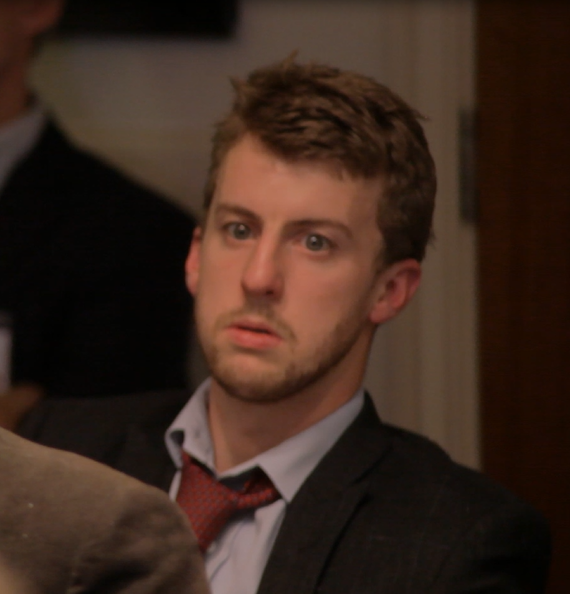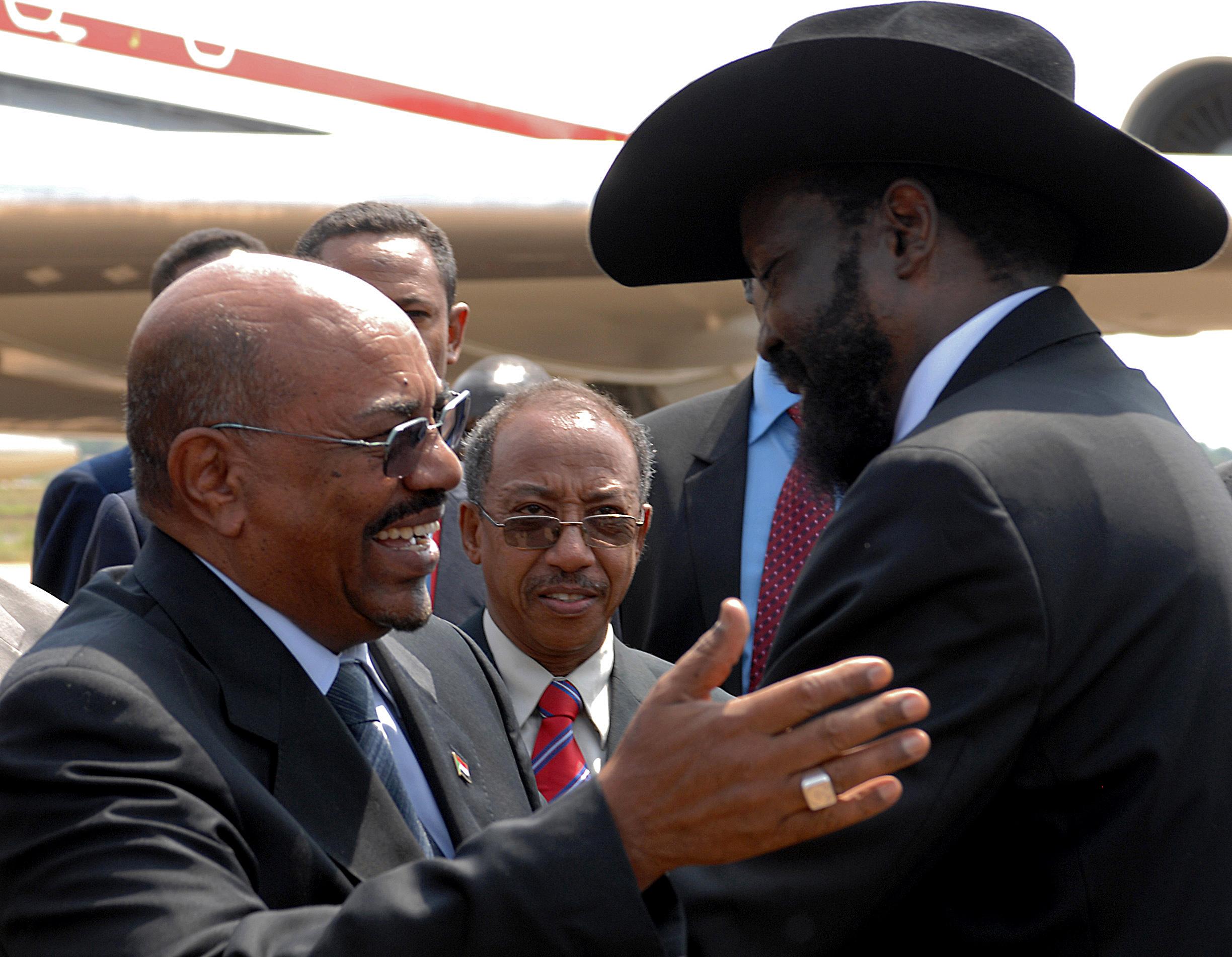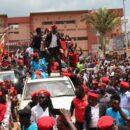Kenya 2013: the power of nightmares – By Magnus Taylor

 After 5 days of waiting – first queuing to vote, then watching for results – it slowly became apparent that Uhuru Kenyatta (Son of the Father of the Nation, ICC indictee and leader of the Jubilee Alliance) was going to win. On Friday evening his lead surged to over a million votes as a series of large Central Kenyan and Rift Valley constituencies reported high-turnouts and big wins for Jubilee. As detailed in my previous post, the rumour of a Kenyatta victory had been out there for a couple of days, but until Friday it would remain just that, a rumour.
After 5 days of waiting – first queuing to vote, then watching for results – it slowly became apparent that Uhuru Kenyatta (Son of the Father of the Nation, ICC indictee and leader of the Jubilee Alliance) was going to win. On Friday evening his lead surged to over a million votes as a series of large Central Kenyan and Rift Valley constituencies reported high-turnouts and big wins for Jubilee. As detailed in my previous post, the rumour of a Kenyatta victory had been out there for a couple of days, but until Friday it would remain just that, a rumour.
The race tightened again before the full 291 constituencies were called and the Independent Electoral and Boundaries Commission’s (IEBC) final results meant that under the “˜50 percent plus one’ rules Kenyatta was elected with 50.07 percent of the vote. A first round win was consequently achieved by just a few thousand votes.
As we had also known since they held a press conference on Thursday morning, Raila Odinga’s CORD was very unhappy with how the count was administered by the IEBC. On Thursday, a crowd of party operatives based themselves in the main auditorium at “˜Bomas of Kenya’ and started kicking up an increasingly public fuss about the conduct of the count. However, until Odinga conducted a press conference shortly after IEBC formally declared the result, these grievances were not presented in a coherent manner.
In particular, Kalonzo Musyoka’s performance on Thursday, when CORD’s reservations about the process were first officially aired, certainly got the press contingent in the room excited, but I didn’t get the sense that it made much impact nationally. The feeling amongst the assembled hacks was that CORD knew they were losing and were getting desperate.
At Bomas, pages of numbers were waved around reportedly detailing constituencies where votes tallied numbered more than voters registered. A colleague was also shown a video of what were apparently “unprofessional” counting procedures – one consisting of a man counting votes by a gas lamp and another by the headlights on a motorcycle. Not ideal, but hardly convincing evidence for fraud.
Raila’s Saturday statement was, however, was one of his more impressive performances. He looked tired and sad and, without any bombast, stated that “almost everything the IEBC deployed for the election failed”. This is, in my opinion, harsh – the major failure (detailed here) was that of the electronic relay of results. That was, indeed, a severe set-back, but it shouldn’t necessarily detract from the credibility of the manual count, which was administered methodically by the IEBC. A parallel count by ELOG (the Electoral Observation Group) confirmed that the official tally was credible. CORD will take its grievances to the courts but, to its credit, has made a commitment to accept whatever ruling is reached.
One side issue about the IEBC, which affected those following or reporting the election from Bomas most directly (but also anyone, anywhere, who was waiting to hear the result) was how they refused to be rushed. IEBC chair Issack Hassan and CEO James Oswago gave periodic press conferences, usually hours later than advertised, containing much verbose preamble, eventually explaining that they were doing their best and we should wait patiently.
On Saturday, when the results were finally called, we were treated to prayers, the national anthem and two appearances by the choir (well-known now to Bomas stalwarts) before they eventually released the numbers. Whilst this was annoying, you couldn’t help but respect the bloody minded commitment to do things properly and seriously.
The slow pace of the vote had one interesting effect on Kenyans – it meant that life seemed to continue in suspended animation – people were not going to work, kids were not in school and everyone just wanted it to be over. I still don’t sense much enthusiasm, although admittedly I am not in Kisumu (a CORD stronghold) for a run-off or recount.
The memory of the events of 2007/08 seems to have brought Kenyans together during this election, but also made the country more politically conservative. The media, in particular, took their responsibilities very seriously and made an effort to tone down their own rhetoric. For example, press conferences (except those of the IEBC, which weren’t likely to cause major eruptions) were not broadcast live and excessive speculation on results was generally avoided.
A small, but notable event occurred on Friday at Bomas when it was announced that a legal case brought by a coalition of NGOs, which argued the IEBC count was fatally flawed, had been thrown out (the ruling being outside the jurisdiction of the civil court). This was greeted with applause not, I suggest, because the people present did not care about irregularities, or were particularly partisan, but rather because it seemed like another means (with no guarantee of success) to delay the results of what appeared to be an inexorable Kenyatta victory.
Many Kenyans have deep reservations about Uhuru and half of the country didn’t vote for him. The ICC indictment is clearly an issue, but since Kenyatta’s case has been pushed back to June it may be that it was far enough away for the population to take the view that they will deal with that problem when it arrives. Ruto’s case, which is also thought to be the stronger of the 2, probably has a bigger chance of disrupting the alliance. However, his main job may have been done – getting Kenyatta elected – and VPs are expendable.
One feeling I got from all this “˜national unity’ is that politics in Kenya is now something that people fear – whilst politicians may promise to make lives better, the power of nightmares imbued the whole election. This is probably a rational response to what has become the defining moment of Kenya’s recent history – the 07/08 post-election violence. Many Kenyans, notably those within civil society, have spent the last 5 years trying to avoid a repetition of those events, to reduce political partisanship and generally bring the temperature down.
However, it was actually an act of bold political calculation – the alliance between Uhuru Kenyatta and William Ruto – that was the most important factor in mitigating against the country’s most dangerous ethno-political cleavage (that between Kikuyu and Kalenjin communities in the Rift Valley). As I have said before, this was an ethnic bargain of the “˜lowest common denominator’, based on the shared ICC indictment, but it also provided the logic behind the formation of the victorious coalition.
This will not have solved the core problems of land ownership and displaced communities, but as a temporary (and probably inadvertent) solution it seems to have worked. Kenya’s “˜problem’ of ethnicised politics has not been fixed (merely postponed) – this election season went by without major incident, in no small part, because the most problematic players were on the same side.
Barring dramatic revelations in the next few days, Uhuru seems to have won fair and square. I don’t think CORD’s legal challenge will be successful and most Kenyans already seem to be moving on. However, as impressive as his campaign may have been – he beat Odinga on voter registration and turnout, campaigned better and chose a more effective running mate – the election showed us that Kenya is far from being over the nightmare of 07/08.
Magnus Taylor is Editor of African Arguments. He reported from Nairobi throughout the 2013 elections.






[…] Taylor is Editor of African Arguments. He reported from Nairobi throughout the 2013 elections. aa Share this:StumbleUponTumblrPinterestDiggLinkedInGoogle +1MoreTwitterFacebookLike this:Like […]
[…] Posted by AfricanArgumentsEditor […]
[…] Kenyans… have spent the last 5 years trying to avoid a repetition†of the violence of 2007, writes Magnus Taylor, a South African who reported daily from Nairobi on the election. But he […]